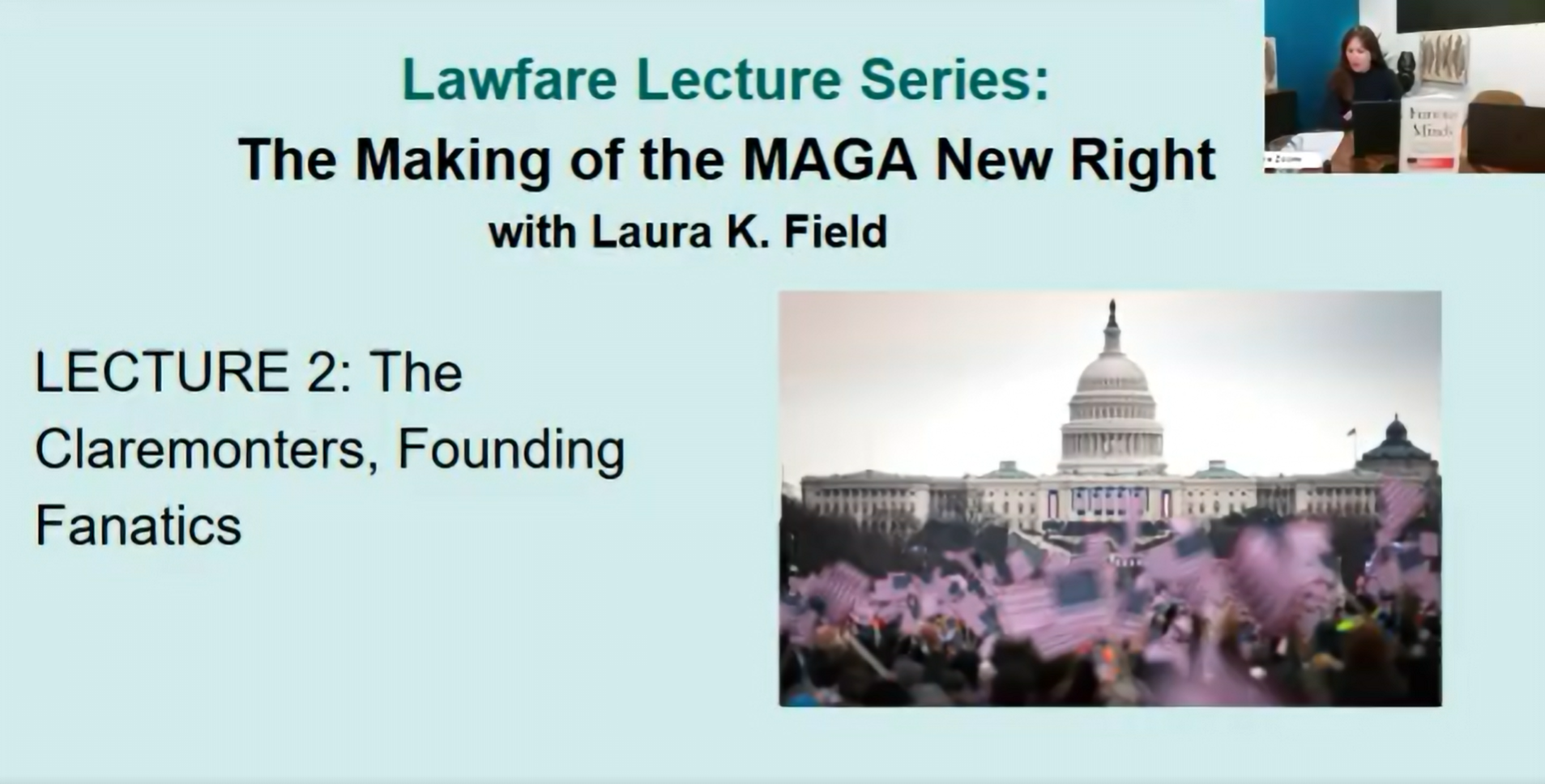The Week That Was: All of Lawfare in One Post

Published by The Lawfare Institute
in Cooperation With

On the Lawfare Podcast, Benjamin Wittes sat down with Chimène Keitner to discuss South Africa's petition under the Genocide Convention against Israel in the International Court of Justice, Israel’s defense, and how the court may consider the matter at this preliminary stage.
Keitner looked at the oral arguments from the South African and Israeli legal teams in South Africa v. Israel at the International Court of Justice.
Mark Lattimer explained what provisional measures the International Court of Justice might impose on Israel even though a determination on the merits of South Africa v. Israel likely won’t be delivered for years.
On Lawfare No Bull, Katherine Pompilio shared audio of the South African legal team’s oral arguments at the International Court of Justice in South Africa v. Israel, and Matthew Gluck shared oral arguments from Israel’s side.
Tyler McBrien shared transcripts of South Africa’s and Israel’s oral arguments delivered at the Hague in South Africa v. Israel on South Africa’s allegations that Israel is in violation of the Genocide Convention in Gaza.
On the Lawfare Podcast, Gluck sat down with Scott Anderson and Gergory Johnsen to discuss the recent Houthi attacks against commercial ships, the U.S. response, and where the fighting is likely to go from here.
Gluck shared President Biden’s letter to Congress notifying it of U.S. strikes against Houthi militants in Yemen in accordance with the War Powers Resolution.
On the Lawfare Podcast, McBrien sat down with Marc Garlasco and Emily Tripp to discuss the state of civilian harm worldwide, the Pentagon’s new civilian harm reduction policy, and more.
Wittes talked to Roger Parloff and Quinta Jurecic about the recent court filings in Fulton County, where the various Section 3 disqualification suits against Trump stand, and more on this week’s episode of “Trump’s Trials and Tribulations.”
Parloff drew from Cassidy Hutchinson’s memoir and other primary sources to explore what happens when a witness is represented by an attorney selected and funded by close allies of the person or people at the center of that investigation.
Chuck Rosenberg put into context the 25 percent of Americans who believe Jan. 6 was an FBI operation.
Nate Wood explained how Mark Milley was able to be a check on former President Trump’s power as chairman of the joint chiefs of staff.
On the Lawfare Podcast, Wittes talked to Bower, Jurecic, and Parloff about the closing arguments in the New York civil fraud case, the flurry of motions filed in Fulton County by the Jan. 8 deadline, and more.
On Rational Security, Jurecic and Anderson were joined by Molly Reynolds to talk through the week’s big stories at the intersection of politics and national security, including Ukraine aid currently being debated in Congress and the Republican presidential primary in Iowa.
On this week’s Chatter, David Priess spoke with Hans Kristensen about the chain of command for nuclear strike authorization, alternatives to the current system, fictional scenarios of nuclear launches, deterrence and human psychology, and more.
Karin Landgren and Shamala Kandiah Thompson looked back on the UN Security Council’s work in 2023, the crises it faced, and the challenges it still needs to overcome.
On the Lawfare Podcast, Eugenia Lostri sat down with Justin Sherman to talk about the FTC’s recent groundbreaking settlement with location data broker X-Mode Social and the persistent need for comprehensive privacy legislation to better address harms.
Kenneth Propp and Christopher Docksey argued that the bilateral EU-U.S. Data Privacy Framework serves as an important precedent for future systems of data protection accountability.
In this week’s edition of the Seriously Risky Business cybersecurity newsletter, Tom Uren discussed the targeting of end-of-life devices by hackers, a $3 million fine leveled against eBay by the Justice Department, and more.
In this week’s installment of Lawfare’s Foreign Policy Essay series, Miles M. Evers contended that the United States is unlikely to defeat China in an economic war because of the position of American businesses in the global value chain for semiconductors.
Jim Baker and Richard Salgado argued that proposed changes to the Investigatory Powers Act currently being debated in the U.K. Parliament will put the security of its citizens at risk.
And that was the week that was.



.png?sfvrsn=bd249d6d_5)

